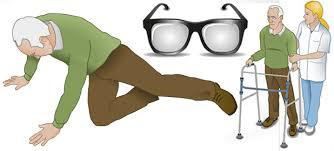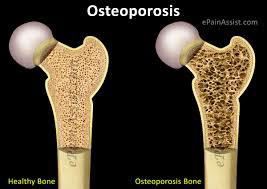 ATC
ATC
The World Health Organization tells us that worldwide, falls are the second highest cause of accidental deaths with those over 65 years of age being at greatest risk of experiencing a fatal fall.

Many falls do not cause injuries. But one out of five falls does cause a serious injury such as a broken bone or a head injury. These injuries can make it hard for a person to get around, do every day activities, or live on their own.
Falls can cause broken bones, like wrist, arm, ankle, and hip fractures.
Falls can cause head injuries. These can be very serious, especially if the person is taking certain medicines (like blood thinners). An older person who falls and hits their head should see their doctor right away to make sure they don’t have a brain injury.
Many people who fall, even if they’re not injured, become afraid of falling. This fear may cause a person to cut down on their everyday activities. When a person is less active, they become weaker and this increases their chances of falling
CONDITIONS THAT MAKE YOU MORE LIKELY TO FALL
-
Lower body weakness
-
Vitamin D deficiency
-
Difficulties with walking and balance.
-
Use of medicines, such as tranquilizers, sedatives, or antidepressants. Even some over-the-counter medicines can affect balance and how steady you are on your feet.
-
Vision problems
-
Foot pain or poor foot wear
-
Home hazards or dangers such as:
-
Broken or uneven steps, and
-
Rugs or clutter that can be tripped over
TO PREVENT FALLS
Falls can be prevented. There are some simple things one can do to keep from falling. We can reduce our risk of injury or death from an accidental fall through mindful exercise. The reality is that any activity that requires that we maintain balance-be it while on our feet, hands, pelvis, or a combination thereof-will develop our joint position sense, thereby strengthening our immunity against slips and falls.
-
Do strength and balance exercises: A simple and highly effective way of improving proprioception (sense of balance) is to spend a few minutes a day balancing on one leg at a time. First with your eyes open and then with your eyes closed. It’s always prudent to be near a wall or stable object for support if needed. You can vary this up by bringing one knee up in front of you while balancing on the other foot, and even extending one leg straight in front of you and then straight behind you for several seconds at a time. To maintain such positions, even for a few seconds, requires countless ongoing adjustments throughout your kinetic chains, and the more you do this, the better your nervous and musculoskeletal systems become at keeping your body balanced in a variety of circumstances.
For the video visit:
https://drbenkim.com/technical-stand-upprogressions.htm
-
Talk to Your Doctor
-
Ask your doctor or health care provider to evaluate your risk for falling and talk with them about specific things you can do.
-
Ask your doctor or pharmacist to review your medicines to see if any might make you dizzy or sleepy. This should include prescription medicines and over the counter medicines.
-
Ask your doctor or health care provider about taking vitamin D supplements.
-
Get Your Eyes Checked
Have your eyes checked by an eye doctor at least once a year and be sure to update your eye glasses if needed.
If you have bifocal or progressive lenses, you may want to get a pair of glasses with only your distance prescription for outdoor activities, such as walking. Sometimes these types of lenses can make things seem closer or farther away than they really are.
-
Make Your Home Safer
-
Get rid of things you could trip over.
-
Add grab bars inside and outside your tub or shower and next to the toilet.
-
Put railings on both sides of stairs.
-
Make sure your home has lots of light by adding more or brighter light bulbs.
OSTEOPOROSIS

An unexplained foot fracture may be an early sign of osteoporosis. Research suggests that people who suffer foot fractures that are not due to accidents or repeated stressful motion should ask their physicians to consider giving them a bone-density test for osteoporosis.
Osteoporosis can be a complication from chronic illnesses like chronic obstructive pulmonary disease (COPD), asthma and other chronic diseases treated with steroids.
At-risk patients should ask a doctor about bone-density testing and calcium supplements. Men may need to have testosterone levels tested too.
With aging, individuals often decline in physical and cognitive functions, and social networks may narrow. Literature has demonstrated that social relationships are positively associated with health status across one’s lifespan. The narrowing of social networks may be problematic for health in older age and lessen subjective well-being, life satisfaction, and quality of life. Thus, identifying modifiable factors that may aid in establishing social relationships is important: Health-promoting behaviors, such as leisure activity, may strengthen the link between social relationships and health.
